Throwing Up for Peace
The sad fact is that all traditional modes of dissent, whether they're protest marches or boycotts or sit-ins, must ultimately fail because they are generally powerless to prevent their own inception. What does that mean? The sad fact is that all traditional modes of dissent, whether they're protest marches or boycotts or sit-ins, must ultimately fail because they are generally powerless to prevent their own inception.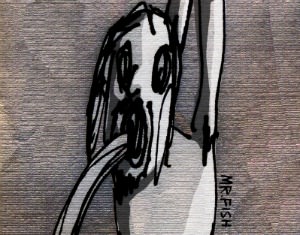
“War is peace. Freedom is slavery. Ignorance is strength.”
— George Orwell
The sad fact is that all traditional modes of dissent, whether they’re protest marches or boycotts or sit-ins, must ultimately fail because they are generally powerless to prevent their own inception. What does that mean? It means that once you’re able to label an injustice as being unjust, it’s already happened. Protest movements generally come about only after the baby has already bounced once on the ground, which, of course, is always too late to prevent the baby from falling in the first place. More often than not, a protester is looking at a wheezing sea gull with 11 toes when he is shouting, through cupped hands, “For the love of God Almighty, end pollution NOW!”
In fact, organized activism such as the peace movement, even when executed on a grand scale, has never in the history of the world achieved the demands of its organizers nor the expectations of its participating sympathizers. Real humanitarianism requires years and years of practice to become useful to a society. It requires a certain eloquence to endear itself to the part of people’s brains that recognize the relevance of something only if it bears joyful repetition. It’s a lot like music that way. That’s why, even to the most forgiving ear, much of mass protest comes off sounding, politically speaking, like a bunch of people with no musical ability coming together to play the “Jupiter Symphony” on kazoos. The result is typically heartbreakingly charming to the friends and family of the protesters, but pathetic and unlistenable to most everybody else.
Of course, the only hope we may have as a species lies within our ability to hear exquisite music inside the silence in between the notes we play, to see the beauty on the blank or graffitied walls separating our masterpieces and to recognize, with grace, our pathetic ineptitude when it comes to being able to appreciate the virtues of heaven only by requiring the episodic presence of hell on Earth.
I was recently sitting all alone in a vegan sandwichery and espresso joint in South Philadelphia watching a gangly barista with a translucent pubic beard dyed pink, neck tattoos and a tongue piercing that made him sound like Jodie Foster’s Nell when he spoke — Trouble go away at nigh’, an’ Nell caw Mi’i – an’ Nell an’ Mi’i – ye’, Nell an’ Mi’i – like t’ee in the way! — reach up under his Fuck Rehab T-shirt, unscrew the tiny barbell from his left nipple, pull it out, smell it and toss it onto the counter like it was a rancid olive. “Wah?” he said, when he noticed my expression of clear disgust. “Haen’t yew ebah gottn ah infecded teet befoe?”
“Lots of times,” I said, lying, “but I never diagnosed myself while working in food service, having just used my naked hand to press down on the toasted sourdough and avocado sandwich of a customer who was sitting in front of me.”
“Wha-evah,” he said, retreating into the backroom where, I imagined, he planned on dragging the onion ring-sized piercing he had on his taint through the mayonnaise bin.
Ralph Waldo Emerson said that, “Nature and books belong to the eyes that see them,” which, to me, meant two things. First, elements of reality are real only when they are direct and experiential and, second, no one can claim the right to define what reality should look and feel like to another person. Having recently discovered the quote inked onto the front cover of a tattered journal from college, the sentiment freshly imprinted upon my mind, I decided to finish my lunch and to not think the worst of the Maynard G. Krebs-meets-Lady Gaga hybrid who, when I stood to leave, I saw back near the dishwasher milking the pus out of his breast with fingernails painted black, his shirt rolled up beneath his chin, his grubby sneakers hoisted onto tiptoes. He didn’t notice me, nor did the cat cleaning its ass on the prep table next to him, its hind leg pointed to the sky, its tiny brown head, pitching and bobbing like an aberrant muffin on a choppy sea, buried deep in its own crotch.
“All art is a kind of confession, more or less oblique. All artists, if they are to survive, are forced, at last, to tell the whole story; to vomit the anguish up.” — James Baldwin
Food poisoning, when you’re ululating in fever at the center of its acidic fire, can feel incurable and as intractable and capricious as mental illness. Susan Sontag said in her book, “Illness as Metaphor,” “Any important disease whose causality is murky, and for which treatment is ineffectual, tends to be awash in significance.” Eight hours after wiping what I could only hope was lemon-dill mayo off my lips with a paper napkin, I was lying on my bed in nothing but my underpants, with pen and notebook in hand, feeling like Friedrich Nietzsche struggling through the cacophonous fog of tertiary syphilis to articulate the meaning of all human existence, the world’s collective ear cocked hard in my direction, my will to live as dubious as a flame on a wick slowly capsizing in wax.
“There is a difference between taking a step backward from the edge of a cliff and turning around and taking a step forward,” I wrote, then took a break to puke from every orifice. “No one who’s ever died on a battlefield has complained about the experience afterwards,” I wrote. Then I threw up — and down! — again.
Of course, what the Emerson quote hadn’t considered was that some things in life — perhaps most things — are just too small for anybody to see with the naked eye and, therefore, by belonging to no one in particular, end up belonging to everybody in general, for better or for worse. Things like Escherichia coli, for instance, which will reveal itself only once it is accompanied by explosive diarrhea and vomiting after being delivered by way of a toasted sourdough, avocado and kitty litter sandwich. And then there are the invisible things that are invisible because they are conceptual and non-corporeal. They are things such as faith and patriotism and love and prejudice, each requiring its own unique version of explosive diarrhea and vomiting to make itself real in the world. In other words, while nature and books surely belong to the eyes that see them, it is the physiological response that they invoke when processed by the rest of the body that creates the real-world ramifications that end up belonging to everybody else. Sure, the knuckleheaded hipster who made my sandwich had a right to define for himself what wicked-coolness was, but once that idea was processed by his eyes and eventually found manifestation in the hands that he used to make my sandwich with — hands, apparently, too enamored with Goth Almighty to at least shoo Princess Analingus off the goddamn cutting board — then his wicked-coolness became just another disruptive anomaly there to complicate the trajectory of my own wicked-coolness, which was always looking for the straightest path possible upon which to guide itself, unmolested.
“A principle is the expression of perfection, and as imperfect beings like us cannot practice perfection, we devise every moment limits of its compromise in practice.” — Mahatma Gandhi
Eventually, of course, I felt better and, within 24 hours of puking the guts of my guts out, I made plans to return to the ground zero of my agony, not because I wanted to contract another foodborne illness, the symptoms of which I was already beginning to forget, but because I liked believing that veganism was a noble antidote to the gargantuan holocaust that so many of our tastier animals were forced to endure. It didn’t matter that the cafe was a bit of a drive. The extra gas, I figured, was well worth it.
So, like Jesus Helluvaguy Christ, himself, I graciously forgave my tormentors and blessed the shortcomings of my brothers and sisters and resumed my life as an editorial cartoonist paid to complain about shit, a self-proclaimed accuser who was daring enough to reach through the two-dimensionality of his own mirror and taunt Armageddon through the bars of a cage that recognized the savagery contained on both sides of the barrier — all the while secretly worrying that most people prefer kindness to hate, nonviolence to violence, not because they’re virtuous or reliably humane, but because they’re too lazy to devote themselves to the rigorous calisthenics necessary to pull off the most gruesome doomsday imaginable.
Your support matters…Independent journalism is under threat and overshadowed by heavily funded mainstream media.
You can help level the playing field. Become a member.
Your tax-deductible contribution keeps us digging beneath the headlines to give you thought-provoking, investigative reporting and analysis that unearths what's really happening- without compromise.
Give today to support our courageous, independent journalists.
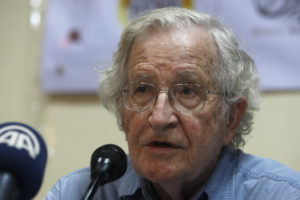


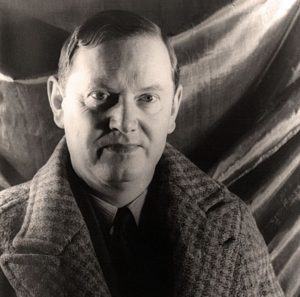
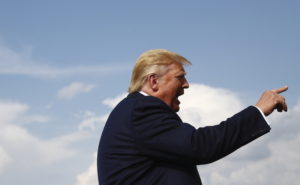
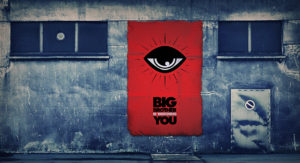
You need to be a supporter to comment.
There are currently no responses to this article.
Be the first to respond.